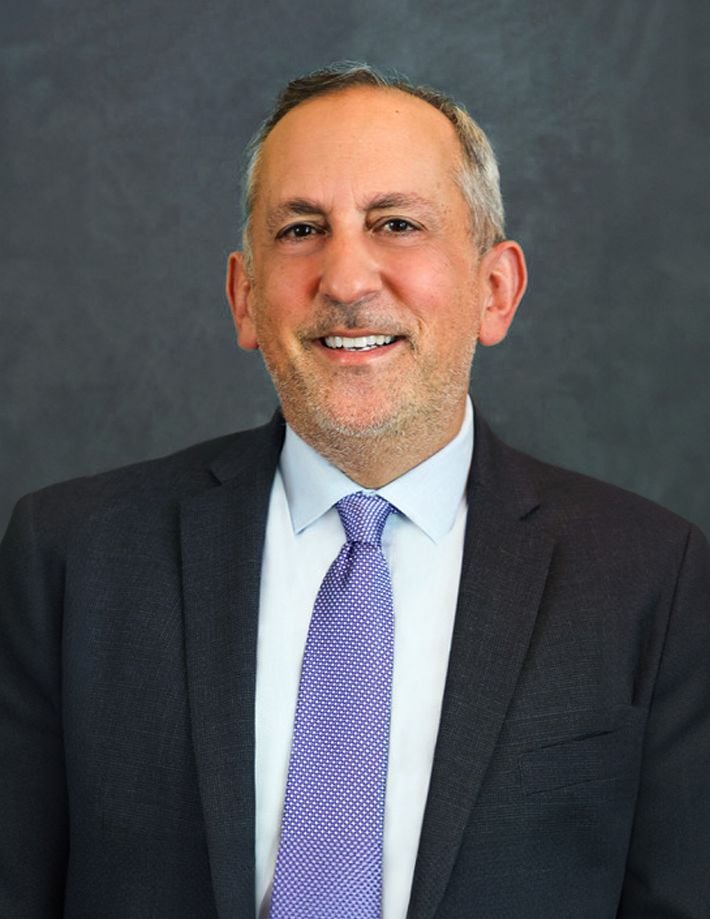A Lid on the Canna Worms? Congress Formally Pursues Prohibition of Intoxicating Hemp
Click “Subscribe Now” to get attorney insights on the latest developments in a range of services and industries.
By Benton Bodamer, Jonathan Wachs, Benjamin Sobczak, Rachel Schaffer Lawson, Taylor MacDonald, and Jessica Kaiser
When Congress passed the 2018 Farm Bill, signed into law by President Trump in December 2018, the legislation aimed to support rural economies, promote the production of hemp-based materials such as fiber and grain, and open the door for non-intoxicating compounds, including CBD, to enter regulated commerce. By defining hemp as cannabis containing no more than 0.3% delta-9 THC on a dry weight basis (the “Dry Weight Test”), the law sought to distinguish hemp from federally illegal marijuana.[1]
The theory was simple, but the reality is not. At the time, Congress believed that because delta-9 THC was understood to be the key to marijuana’s psychoactive effects, the Dry Weight Test appeared to draw a functional line between intoxicating cannabis and federally legal hemp to support agriculture. In practice, however, the line has proven anything but clear for various reasons. Among those reasons:
- Other Cannabinoids. The Dry Weight Test does not take into account the multitude of other minor, intoxicating cannabinoids contained in a cannabis plant (i.e., delta-8 THC, delta-10 THC, THCa, THCp, HHC, etc.), much less new molecules that are purely a product of chemical synthesis.
- A Test For Plants, not Products. Adding additional confusion, the Dry Weight Test was intended to apply to differentiating cultivars of plants (i.e., despite scientific status as “cannabis sativa l.,” is the individual plant a federally legitimate agriculturally useful “crop” protected by the Farm Act, or literal “weed”?). The test was not designed to differentiate between products that can be made from either “hemp” or psychoactive cannabis. Did Congress actually intend that a package of 10mg delta-9 THC gummies could be sold in a gas station if a farmer grew the raw material prior to extraction by an unlicensed producer, but would be federally illegal if a state-regulated licensed operator tracking all products from “seed to sale” produced it?
- Unforeseen Ripple Effects. If the 2018 Congress had understood that the majority of their defined term “hemp” is actually psychoactive because a separate molecule, THCA (which doesn’t trip the Dry Weight Test), decarboxylates into delta-9 THC when heated (i.e., after testing), surely this ambiguity would have been reflected in the test. If they had further understood that the Dry Weight Test would be twisted by DEA letter opinions to de facto “legalize” marijuana seeds, and ingestible products like brownies and beverages, for instance, products that contain intoxicating amounts (but arguably compliant “concentrations”) of delta-9 THC, surely they would have provided guidance.
Entrepreneurs have seized upon the opportunity to provide the consumer public with a “cannabis” experience unburdened by the many regulatory and tax restrictions imposed upon state-regulated, federally non-compliant marijuana companies. The popularity of hemp-derived THC products has been one of several factors contributing to increased hemp cultivation, particularly in the floral segment, known for being rich in cannabinoids like CBD, delta‑8 THC, or THCA. While the annual value of U.S. industrial hemp production increased 40% in 2024 compared to the year before, the floral hemp segment saw an astonishing 159% surge in production.
The resultant divide between intoxicating hemp businesses and state-licensed marijuana operators is a virtual knife fight of economic and policy interests, including (i) concerns about unregulated and potentially dangerous intoxicating hemp, (ii) children’s access to such products, (iii) the usefulness of intoxicating hemp in states that do not have a robust, licensed marijuana market, and (iv) the general prohibition of state-specific economic protectionism under the Constitution, to name a few.
A Patchwork of State Approaches
Despite this tension and uncertainty, until recently, a lack of federal input as to intoxicating hemp created a regulatory vacuum that many states sought to manage with a patchwork of various approaches and regulations. For instance, several states closed the perceived intoxicating hemp “loophole” by folding hemp products into existing psychoactive cannabis regimes, imposing outright bans, or creating new licensure structures to control distribution and retail sales. Connecticut, Louisiana, and others have avoided legal challenges to such efforts by aligning their frameworks with federal hemp definitions while still requiring cannabis-style licensure and compliance. Courts in states like Alaska and Virginia have upheld these restrictions, signaling judicial support for aggressive state-level regulation of hemp-derived cannabinoids.
As of June 2025, Texas—which boasted a $7.5 billion intoxicating hemp market with an estimated 8,500 mostly unregulated hemp-related businesses—is on the verge of enacting one of the nation's most stringent bans on hemp-derived THC products. Texas Senate Bill 3 (SB 3), which has passed both legislative chambers, awaits Governor Greg Abbott's decision. If signed into law, the bill would take effect on September 1, 2025, and would prohibit the manufacture, sale, and possession of consumable hemp products containing any detectable amount of THC. California took a similar approach as recently as September 2024, causing a huge shake-up in national intoxicating hemp manufacturing and operations.
Taking a different approach, the Missouri Attorney General issued a wave of cease-and-desist letters this month targeting THCA flower. The letters relied on informal enforcement mechanisms despite the absence of supporting state legislation. This decision further illustrates the patchwork approach emerging across jurisdictions. The myriad other state approaches are too numerous to mention in this alert, but it is again worth noting that through all of the confusion, as states have acted as the “laboratories of democracy,”[2] the federal government has remained generally silent. Aside from a few letters published by the DEA, which were generally brushed off by applicable Court of Appeals opinions on the subject, no appreciable federal action has been taken. Earlier this month, however, the federal government—for the first time—formally expressed its intentions concerning intoxicating hemp.
A “Quiet” Pivot in Federal Hemp Policy Through Changes to the Definition of Hemp
The House Appropriations Committee released the fiscal year 2026 “Agriculture, Rural Development, Food and Drug Administration, and Related Agencies Appropriations Bill” on June 4, 2025. As with previous years, this legislation is passed annually to fund farm programs. However, among the usual funding directives and agency mandates, buried on page 113, was language targeting intoxicating hemp derivatives; redefining hemp in a way that bans all products containing a “quantifiable” amount of THC.
This language, which closely resembles the “Mary Miller Amendment” introduced in the House last year by its namesake representative, has drawn both cheers and backlash. In its press release, the committee states that the bill “closes the loophole that allows intoxicating hemp products to be sold”. Meanwhile, hemp industry stakeholders and civil liberties advocates condemn it as a quiet attempt to ban hemp products without open debate.
The 2026 proposal, as introduced, would redefine hemp to exclude any hemp-derived cannabinoid products (finished goods) containing:
- Cannabinoids that are not capable of being naturally produced;
- Cannabinoids that are capable of being naturally produced but were synthesized or manufactured outside of the plant; or
- Quantifiable amounts of THC or THCA, or other cannabinoids that have similar effects on humans or animals.
The proposed legislation would grant the U.S. Secretary of Health and Human Services the authority to define what constitutes a “quantifiable amount” of THC or other cannabinoids. This would be a significant federal pivot from the slow-motion slippery slope of initial permissiveness since the 2018 Farm Bill was signed to a near-total prohibition of hemp-derived cannabinoids, including those regulated at the state level. Ironically, this could re-criminalize state-compliant hemp regulated under state psychoactive cannabis regimes, a move the states made in response to the federal failure of leadership on intoxicating hemp regulation.
Economic Turf Wars Beneath the Surface
While policymakers often frame these efforts in terms of consumer safety or regulatory clarity, economic forces are playing a quieter but influential role. In June 2025, the CEO of Brown-Forman Corporation—parent company of Jack Daniel’s and Woodford Reserve—acknowledged during an earnings call that cannabis legalization is beginning to erode traditional alcohol sales. While he did not name specific products, the rise of widely available, low-dose intoxicating hemp beverages is widely viewed within the alcohol industry as a contributing factor to declining demand for spirits, particularly among younger consumers. Financial analysts have echoed the concern, forecasting declining alcohol consumption and sustained growth in cannabis use, particularly among younger adults.
The proposed language of the 2026 appropriations bill has sparked backlash from unexpected corners, including the Wine & Spirits Wholesalers of America (WSWA). Though WSWA supports banning synthetic cannabinoids, it warns that a blanket prohibition would destabilize state regulatory structures and punish compliant businesses. “Bad actors will thrive in the shadows,” cautioned WSWA’s CEO, advocating for targeted regulation rather than sweeping bans. From a state-licensed psychoactive cannabis operator’s perspective, those taking advantage of the intoxicating hemp “loophole” to increase cannabinoid distribution without any realistic safeguards against use by minors might be characterized as less than ideal actors, and not exactly in the shadows.[3]
The WSWA’s position reflects a broader regulatory instinct rooted in established distribution systems, such as Tennessee’s recently-announced alcohol model where a three-tier structure governs production, distribution, and retail sales, including at bars and other similar venues.[4] Tennessee’s newly-enacted approach contemplates a wholesale distributorship license type akin to that of alcohol, further signaling anticipated inroads by the alcohol industry into cannabis-derived intoxicants.
Looking Ahead
As the regulatory landscape for hemp-derived cannabinoids evolves, the need for clarity has never been greater. With states advancing restrictive measures and Congress weighing sweeping federal changes, businesses operating in this space face increased legal and commercial uncertainty. Is there still room for new intoxicating hemp businesses? In what states can these products still be sold and under what circumstances? Should overtaxed and overregulated marijuana businesses continue to explore this alternative market in an effort to secure their longer-term survival, or will the door (accidentally) opened by the 2018 Farm Bill be summarily shut, leaving states to decide whether or not they again want to ignore federal law by allowing state-specific intoxicating hemp products? The landscape changes daily, and decisions made today will determine who ultimately claims market share as the national cannabis marketplace continues to evolve from the kaleidoscope of present possibilities.
If you have questions about how these developments at the state or federal level impact operations, product strategy, or compliance posture, contact our Cannabis Practice Group.
[1] For a comprehensive discussion of the origins and confusions around the emergence of “intoxicating hemp” see Cliffs Without Fences and Fences Without Cliffs: Exploring the Emerging Conflicts Between Quasi-Legal Intoxicating Hemp and Regulated State-Legal Cannabis.
[2] See, e.g., Erwin Chemerinsky, et al., Cooperative Federalism and Marijuana Regulation, 62 UCLA L. REV. 74 (2015).
[3] As a note, the unmitigated access to psychoactive substances of the 1960s is precisely the origin story of the 1970 Controlled Substances Act (prior to which, marijuana, cocaine, and even opium could be prescribed by a physician and purchased in any drug store paying a stamp tax).
[4] We are preparing for a wave of legal work within our Nashville office which will be spearheaded by our local, alcohol-sector specialists as supported by the Cannabis Practice Group. Check back for forthcoming client alerts specific to Tennessee’s presently-developing regulatory structure.
Related Practices
Recent Insights
- Industry Alerts Congress Moves to Redefine Hemp: One Year to Reshape a Multi-Billion Dollar Industry
- Industry Alerts UPDATED: Congress Passes the Coronavirus Aid, Relief, and Economic Security Act (“CARES Act”)
- Industry Alerts DACA Renewal Employer Advisory Alert: The C33 Category
- January 15, 2026 Industry Alerts What Does the Revised Definition of Hemp Mean for Trademarks?
- December 19, 2025 Industry Alerts Marijuana Rescheduling Pending Despite New Executive Order
- December 03, 2025 Industry Alerts TABC Tightens Rules on Hemp-Derived Cannabinoid Products, COAs, and Retail Sales
- October 03, 2025 Industry Alerts Michigan's Wholesale Marijuana Tax: Preliminary Thoughts and Observations
- September 23, 2025 Media Mentions Jonathan Wachs was recently quoted in a Business Monthly article, “Federal cannabis rescheduling would boost industry profits in Maryland.”
- September 2, 2025 In the News Scot Crow and Benjamin Sobczak Named to the 2025 Top 200 Cannabis Lawyers List




